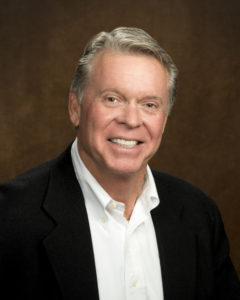By Tim Norris

For the Founders of our country, education was of a paramount concern, uniquely Christian and most definitley bible-based. For instance, in Puritan New England, one of very first laws passed was called “The Old Deluder Act, so called because it was intended to defeat Satan, the Old Deluder, who had used illiteracy in the Old World to keep people from reading the word of God. The New Englander Primer was used to teach colonial children to read and included the Lord’s Prayer, the Apostles Creed, and the text of many hymns and prayers.
We can also see the importance of education in the rules of many of our first colleges. For instance, in The Laws and Statues of Harvard College in 1643 we read: “ Let every student be plainly instructed and earnestly pressed to consider well the end of his life and studies is to know God and Jesus Christ which is eternal life (John 17:3). Yale College listed two requirements in its 1745 Charter: “All scholars shall live religious, godly, and blameless lives according to the rules of God’s word, diligently reading the Holy Scriptures, the fountain of light and truth and constantly attend upon all the duties of religion, both in public and secret. The Reverend John Witherspoon was the only active minister who signed the Declaration of Independence; Witherspoon was best described as the man who shaped the men who shaped America.
In many schools, particularly in the late 19th and early 20th centuries the McGuffey Readers were the main text book. The Readers, unlike their predecessor the New England Primer, mirrored this non denominational Protestantism through a veiled Christianity as opposed to a direct use of the King James Bible in efforts to educate young people. The McGaffey Reader invoked a more non denominational, less orthodox religious tone.
A significant shift for those advocating the centrality of religion to public schools came in the early mid 20th century. As has always been the case, public schools serving as microcosms of society reflected not only the dominant values and ethics of society but also serve as an important economic and intellectual purpose. So as the needs for society changes so do the public schools. In the middle of the 20th century it was commonplace for the school day to begin with a religious prayer or invocation. Beginning in 1962 cases made their way through the courts and in every instance the court found such prayers violated the Establishment Clause.
Since the 1940’s when the 14th Amendment was applied to the 1st Amendment, public schools have been limited in what counts as permissible in relation to religion and public schooling. “ The Federal Guidelines for Religious expression in Schools ”, sums it up, these guidelines developed by a wide ranging panel first commissioned during the Clinton administration and the reauthorization under George W. Bush, emphasized that restrictions on religious expression are limited to school personnel while in their official capacity. Students have free range to express their religious beliefs in public schools , short of harassment, so although some have claimed that God has been removed from the public schools, legal records tells us that it has been only limited to the school officials, Not students!
Under the Equal Access Act (1984) student initiated religious groups are still permitted in the public schools. However, teachers cannot create or lead these groups, though they are allowed to monitor them. In our diverse and interdependent society, understanding and respecting the religious values (or the choice not to believe) of other’s is important. In the United States, this places an obligation on the public schools to rethink its role in helping young citizens understand the history and contributions of religion in society. The relationship between religion and public education is one that has been tied to politics; religious and secular. Recognizing the direct connection between religious illiteracy and religious intolerance one can hope that the role of religion and public schools can come closer to fulfilling their obligation in producing a more moral, ethical and righteous society.
Tim Norris, a long-time Panhandle resident is past Chairman of the Walton County Republican Party and is the current Republican Party of Florida’s State Committeeman for Walton County. Tim Resides in Santa Rosa Beach with his wife Nancy. The couple have 3 daughters, Calli, Hannah and Piper.
The post Guest Columnist: Education, Politics, and Religion at the Founding of America appeared first on South Walton Life | 30A News, Events and Community Information.

Be the first to comment on "Guest Columnist: Education, Politics, and Religion at the Founding of America"